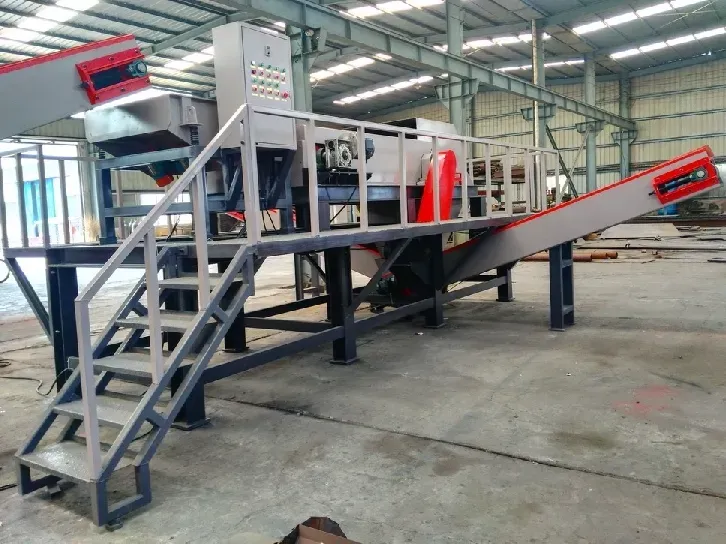

Дек . 13, 2024 17:22 Back to list
How to Dispose of Flat Screen TVs Responsibly
As technology continually evolves, our belongings often become outdated, leaving us with the challenge of disposing of them responsibly. Flat screen TVs, while offering the latest viewing technology, will eventually need to be replaced. With their complex components and potential environmental hazards, proper disposal of these devices is crucial. This article provides a guide on how to dispose of flat screen TVs safely and responsibly.
1. Understand the Components of Flat Screen TVs
Flat screen televisions, including LCD, LED, and plasma models, contain several materials that can be harmful to the environment if not disposed of correctly. These may include glass, plastics, metals, and even hazardous substances like lead and mercury. It is essential to recognize that throwing a flat screen TV in the regular trash can contribute to environmental pollution and violate local laws.
2. Check Local Regulations
Before disposing of your flat screen TV, check your local regulations regarding electronic waste disposal. Many municipalities have specific guidelines or laws in place to manage electronic waste (e-waste), including TVs. Some areas might have designated electronic waste collection days or specific drop-off locations. Familiarizing yourself with these regulations can help you dispose of your TV legally and responsibly.
3. Consider Recycling Options
Recycling is one of the best ways to dispose of flat screen TVs. Many electronic retailers and municipalities offer recycling programs specifically for e-waste. Check with local electronics retailers, as many of them will accept older models when you purchase a new TV. Retailers like Best Buy often have recycling events where customers can drop off their old electronics.
Additionally, you can research local e-waste recycling facilities. These facilities are equipped to handle the materials in flat screen TVs correctly, ensuring that harmful substances are disposed of safely and that recyclable materials are processed appropriately.

If your flat screen TV is still functional, consider donating or selling it. Many charitable organizations accept working electronics, including schools, community centers, and shelters. Donating your television can extend its life and provide entertainment to those in need.
Alternatively, if your TV is in good working condition, you might consider selling it through local classified ads, online marketplaces, or social media platforms. This option not only helps reduce waste but also allows someone else to benefit from a still-functional device.
5. Utilize Manufacturer Take-Back Programs
Some manufacturers have take-back programs for their products. Companies like Samsung, LG, and Panasonic frequently offer options to return old units for proper recycling and disposal. Check the manufacturer's website or contact their customer service to inquire about any available programs.
6. Engage Professional Disposal Services
If you're unsure how to dispose of your flat screen TV, or if it needs special handling, consider hiring a professional disposal service. Many companies specialize in e-waste disposal and can safely collect, transport, and recycle your old electronics. While this option may come with a fee, it ensures that your TV is disposed of in an environmentally friendly manner.
7. Prepare the TV for Disposal
If you opt for recycling or donating, it’s essential to prepare your flat screen TV before handing it over. Remove any personal information, such as passwords and accounts associated with smart TVs. If possible, package the TV in its original box or a protective wrap to prevent damage during transport.
Conclusion
Disposing of flat screen TVs responsibly is vital for protecting our environment and adhering to local regulations. By considering recycling options, donation, or engaging professional services, you can ensure that your outdated technology does not end up in a landfill, contributing to pollution. Taking these steps not only helps reduce e-waste but also promotes sustainable practices in our communities.
Latest news
Troubleshooting Common Eddy Separator Problems
NewsJul.04,2025
The Role of Metal Recycling Plants in Circular Economy
NewsJul.04,2025
The Impact of Recycling Line Pickers on Waste Management Costs
NewsJul.04,2025
Safety Features Every Metal Shredder Should Have
NewsJul.04,2025
How Industrial Shredders Improve Waste Management Systems
NewsJul.04,2025
How Cable Granulators Contribute to Sustainable Recycling
NewsJul.04,2025